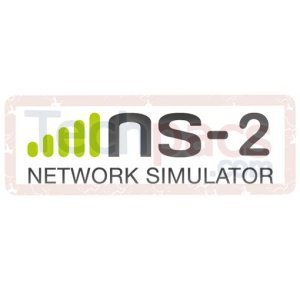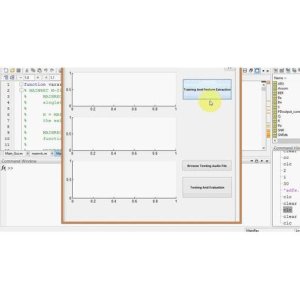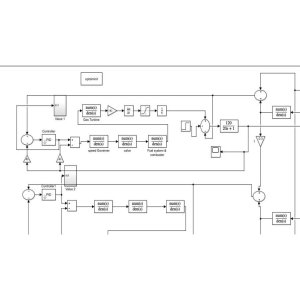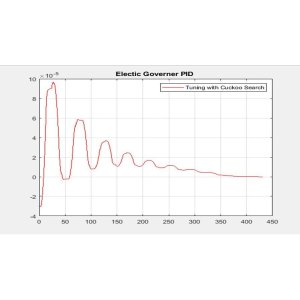Improved Brain Tumor Detection and Classification Using Fuzzy C-Mean Clustering and CNN
Problem Definition
Brain tumors are a serious and potentially life-threatening medical condition that require timely and accurate detection for effective treatment. The current methods used for detecting and classifying brain tumors are prone to inaccuracies, which can result in misdiagnosis or delayed treatment. These limitations can have a significant impact on patient outcomes, leading to unnecessary suffering or even fatalities. By developing an automatic system that combines image segmentation and classification algorithms, this research aims to address the shortcomings of existing methods and improve the accuracy of brain tumor detection. This project is crucial for advancing medical technology and ensuring that patients receive the proper diagnosis and treatment in a timely manner.
The utilization of MATLAB software further enhances the efficiency and effectiveness of the proposed system, making it a valuable tool for the medical field.
Objective
The objective of this research project is to develop an automated system that combines image segmentation using the Fuzzy C-means Algorithm and classification using Convolutional Neural Networks (CNN) to improve the accuracy of brain tumor detection. By utilizing MATLAB software and creating a well-organized dataset for training and testing the model, the aim is to enhance patient outcomes through early and accurate diagnosis. The goal is to streamline the detection and classification process, reduce misdiagnosis risks, and ultimately contribute towards advancing medical imaging technology for better patient care and treatment outcomes.
Proposed Work
The proposed research aims to address the critical need for accurate brain tumor detection and classification by developing an automated system that combines image segmentation and CNN Classification algorithms. The project will utilize the Fuzzy C-means Algorithm for image segmentation to effectively delineate tumor regions from brain scans. By leveraging the power of Convolutional Neural Networks (CNN), the model will be able to classify the segmented regions with high precision and efficiency. MATLAB 2018a will serve as the primary software for model development and execution, providing a robust platform for manipulation and analysis of medical image data. Additionally, the research team will create a well-organized dataset for training and testing the model, ensuring reliable performance and reproducibility of results.
The model's accuracy will be thoroughly evaluated and compared with existing methods to showcase its improved efficiency and sensitivity in brain tumor detection.
Through the proposed work, the research team intends to contribute towards bridging the gap in current brain tumor detection practices and enhancing patient outcomes through early and accurate diagnosis. By employing a combination of advanced algorithms and cutting-edge technology, the model aims to streamline the detection and classification process, reducing the risk of misdiagnosis and improving overall healthcare standards in the field of neuroimaging. The rationale behind choosing the Fuzzy C-means Algorithm and CNN Classification lies in their proven effectiveness in image analysis tasks and their ability to handle complex medical data with high accuracy. The researchers believe that this holistic approach will not only improve the detection rate of brain tumors but also pave the way for future advancements in medical imaging technology for enhanced patient care and treatment outcomes.
Application Area for Industry
This project can be utilized in the healthcare industry, specifically in the field of medical imaging. The proposed solutions can be applied within different hospital settings, diagnostic centers, and research institutions where brain tumor detection and classification are crucial for patient care. By improving the accuracy of brain tumor detection using advanced algorithms, this project addresses the challenge of misdiagnosis or late detection, ultimately leading to better patient outcomes. The benefits of implementing these solutions include more precise and efficient detection of brain tumors, reducing the risk of errors and improving the overall quality of patient care in the healthcare industry.
Application Area for Academics
The proposed project on brain tumor detection and classification can significantly enrich academic research, education, and training in the field of medical imaging and machine learning. This research addresses a crucial challenge in accurately detecting and classifying brain tumors, which is vital for timely diagnosis and treatment planning.
The project's relevance lies in its application of advanced image segmentation and classification algorithms, such as the Fuzzy Semen Algorithm and CNN. By using MATLAB 2018a for model execution and dataset creation, researchers and students can enhance their understanding and skills in utilizing computational tools for medical image analysis.
Moreover, the systematic organization of 'core' files for dataset creation and classification can serve as a valuable resource for researchers, MTech students, and PhD scholars working on similar projects.
They can leverage the code and literature provided in this project for implementing innovative research methods, conducting simulations, and exploring new avenues for data analysis.
The use of cutting-edge technology and research domains, such as image processing, machine learning, and medical imaging, make this project a valuable asset for researchers and students interested in interdisciplinary research. By improving the accuracy of brain tumor detection, this project contributes to advancing medical diagnostics and patient care.
In conclusion, this project offers a significant potential for enhancing academic research, education, and training by providing a comprehensive framework for brain tumor detection and classification. Its application in implementing innovative research methods, simulations, and data analysis can benefit researchers, students, and scholars in advancing their knowledge and skills in the field of medical imaging and machine learning.
Reference future scope: The future scope of this project includes exploring the integration of other advanced algorithms and technologies for improving the accuracy and efficiency of brain tumor detection. Additionally, expanding the dataset with a larger variety of brain tumor images can enhance the model's robustness and generalizability. Further research can also focus on real-time implementation and validation of the model in clinical settings to assess its practical utility for healthcare professionals.
Algorithms Used
The research utilizes the Fuzzy Semen Algorithm for Image Segmentation to efficiently segment images and CNN (Convolutional Neural Networks) for brain tumor classification. The Fuzzy Semen Algorithm reads each image individually, contributing to accurate segmentation, while the CNN aids in classifying brain tumors effectively. The project aims to develop a model for automated brain tumor detection and classification using these algorithms. MATLAB 2018a is employed for model execution and dataset creation, with a systematic organization of 'core' files for dataset management. The model's accuracy is measured against a base filter to enhance accuracy and sensitivity in brain tumor detection and classification.
Keywords
brain tumor detection, brain tumor classification, image segmentation, fuzzy c-means algorithm, CNN classification, MATLAB, automatic system design, dataset creation, classification model, brain tumor dataset, segmented images, accuracy measurement, sensitivity enhancement, result generation, confusion matrix
SEO Tags
brain tumor detection, brain tumor classification, fuzzy semem clustering, image segmentation algorithms, CNN classification, MATLAB 2018a, automatic system design, dataset creation, main classification model, brain tumor dataset, segmented images, result generation, confusion matrix, medical image processing, tumor detection accuracy, late detection prevention, image segmentation techniques.
| Shipping Cost |
|
No reviews found!




















































No comments found for this product. Be the first to comment!